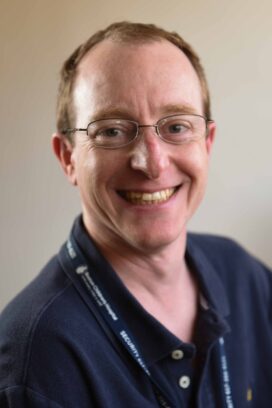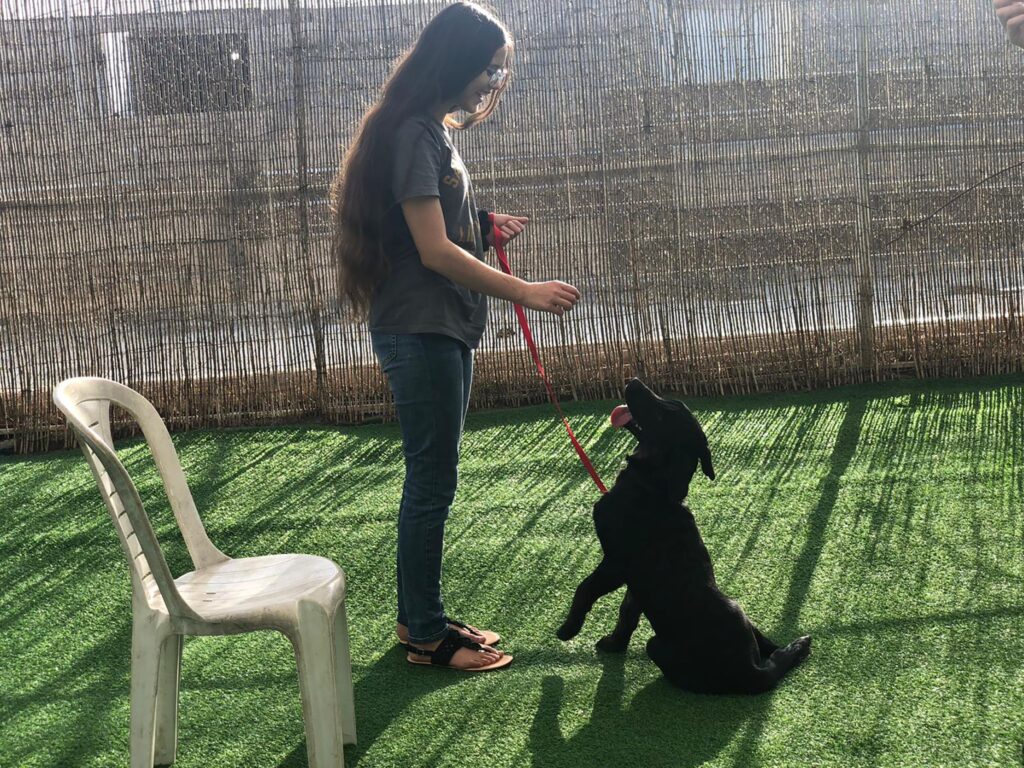Health + Medicine
When Counting Sheep Doesn’t Work
Disrupted sleep may be low on your list of woes, but it shouldn’t be. “Sleep is critical for physical, emotional and mental health,” said sleep disorders expert and pediatric pulmonologist Dr. Joel Reiter, head of the Hadassah Medical Organization’s sleep clinic. “It’s vital in handling stress, depression and anxiety, and even plays a role in effective immune system functioning.”
Up to 50 percent of Israelis struggle with sleep issues, a rate similar to the rest of the developed world. Since its opening five years ago, thousands have sought help at the Hadassah clinic, located at Hadassah Hospital Ein Kerem and part of HMO’s Institute of Pulmonology. The four beds in the clinic’s laboratory, where a patient’s sleep can be studied overnight, have never been empty. In 2019, 368 children and over 400 adults were tested in the lab. Even in 2020 and 2021, with Covid-19 inhibiting hospital visits, clinic numbers scarcely dipped.
“The clinic is so busy that I see sleep patients in my pulmonology clinics, too,” said Dr. Reiter.

One common complaint among the clinic’s female patients is menopause-related sleep problems. Anat (who asked that her last name not be used) is a busy teacher and lecturer from the Jerusalem area who slept soundly until she entered menopause 14 years ago. “My hot flashes were intense and almost hourly, waking me several times a night,” said the 66-year-old. “I battled them for two years until my need for sleep trumped my reluctance for hormone replacement therapy.”
While the hormones controlled her hot flashes, Anat’s trouble falling and remaining asleep had become chronic, leading to debilitating anxiety. She tried other sleep clinics and workshops without success before consulting Dr. Reiter.
At Hadassah, Anat learned about sleep hygiene: creating a good sleep environment, exercising, avoiding certain foods and drinks as well as developing sound sleep habits. “Most important,” she said, “I learned to accept that waking at night at my age is not a disease. That is, instead of dashing off a prescription for sleeping pills or saying there was no solution, Dr. Reiter took off his medical hat and put on the human one that I needed. I sleep better, and when I wake at night, I’m not distressed because I know it’s normal.”
There are 84 disorders of the biological process called sleep that are classified into six groups, all of which are addressed at the Hadassah clinic. Among them are hypersomnia, sleeping too much, and its converse, insomnia, sleeping too little.
Parasomnia includes sleep-talking, sleepwalking, night terrors, nightmares and bedwetting. Circadian rhythm disorder results from confusion of the biological clock that regulates the sleep-wake schedule. Movement disorders relate to thrashing legs and gnashing teeth. And then there are the sleep-related breathing disorders, including snoring and sleep apnea, which bring most patients
to sleep clinics in Israel and around the world.
Obstructive sleep apnea, difficulties sleeping due to an upper airway obstruction, is perceived as a condition that mainly affects adults, but it is also common in children. In fact, a significant number of the pediatric patients seen at the Hadassah clinic suffer from the disorder.
Snoring and nighttime breathing problems brought two brothers from Gush Etzion to Hadassah almost two years ago. Moshe Tzvi Hefetz, then 16, had enlarged tonsils. His younger brother, Chaggai, then an infant, has Down syndrome as well as a related decrease in muscle tone known as hypotonia. “Both conditions can totally or partially blocked upper airways, halting breathing during sleep,” explained Dr. Reiter. “A sleep study or polysomnography is how to check for it.”
Early one evening in spring 2019, the brothers settled into adjoining beds in Hadassah’s sleep lab. Electrodes and sensors were attached to their heads, faces, limbs and torsos. These connected to machines that recorded their breathing, brainwaves, blood oxygen, heart rate and eye and leg movements as they slept.
The lab confirmed obstructive sleep apnea for both. And, as suspected, Moshe Tzvi’s tonsils were at fault. “Their removal solved his problem,” said the boys’ mother, Shayna Hefetz. Meanwhile, Chaggai’s low muscle tone had brought on his sleep apnea, and typical for those with the condition, he now uses a continuous positive airway pressure mask, which gently blows air down his nose throughout the night.
But addressing the sleep apnea resolved only part of Chaggai’s severe breathing difficulties. “He had eight bouts of pneumonia in nine months,” his mother continued. “Dr. Reiter put him on an effective antibiotic and inhalation protocol, and also urged us to have him checked at Hadassah’s feeding and nutrition disorders center. He liaised with teachers at Chaggai’s special needs preschool, helped us get timely medical appointments and organized home visits—not to mention answering our panicked late-night calls about Chaggai’s breathing.”
With more rest at night, Chaggai, now 2, is thriving, and a second sleep study a little less than a year ago downgraded his sleep apnea to mild. A tonsillectomy scheduled for early summer may even cure it.
Nir Ben Ami, an 18-year-old from Kfar Yona near Netanya and a patient at the sleep clinic for the past two years, suffers from one of the less common sleep disorders. An active, healthy pre-teen—she had been Israel’s junior taekwondo champion—she began experiencing headaches and fatigue at age 13, signaling the onset of narcolepsy, a chronic neurological sleep disorder.

There are an estimated 100 narcoleptics in Israel. The illness, which usually appears between ages 10 and 30, is caused by the brain’s failure to manufacture the neuropeptide orexin, an essential substance that enables the brain to regulate sleep cycles. “It took over two years of doctor visits, blood counts, eye tests, MRIs and psychotherapy before we knew what was wrong,” said her mother, Meirav Ben Ami.
“At first, when they found nothing, we were glad,” recalled Nir. “But things kept getting worse. I was falling asleep everywhere: doing a jigsaw puzzle, making toast, setting the table, in the shower, the swimming pool, hiking. I was anxious all the time and angry for no reason.”
Finally, a Tel Aviv neurologist made the diagnosis and recommended that she see Dr. Reiter at Hadassah, nearly an hour’s drive from their home.
Ben Ami’s narcolepsy is severe, said Dr. Reiter, and there is no cure. He has prescribed medication for her excessive daytime sleepiness and is working with her to build good sleeping habits.
“Dr. Reiter encourages me to do everything I can,” she said. He recommended that she volunteer for Sherut Leumi, Israel’s national service program, because she was unable to join the Israel Defense Forces with other Israelis her age because of her illness. “I also spent a month touring the United States with my older sister, Guy, and my twin, Nadav. Most exciting of all, I’m getting a service dog!” The first dog in Israel to be trained for narcolepsy, Hugsy, an 11-month-old chocolate Labrador, is learning to detect the odor emitted from Ben Ami when she dozes off and to nudge her awake.
The Covid pandemic brought a host of sleep issues to Israelis as well as complicating the slumber of those like Ben Ami who already had challenges. An HMO-Hebrew University study of over 4,000 people in 49 countries, including Israel and the United States, found that insomnia, stress-related fatigue, use of sleeping aids and poor sleep patterns were all on the rise during the pandemic. The study, published in the Journal of Clinical Sleep Medicine in September 2020, found that women were at highest risk, along with those most socially isolated and those with insecure livelihoods—all groups that have been disproportionately affected by the pandemic.
“Covid-related sleep issues threaten health, and all are potentially chronic,” said Dr. Neville Berkman, director of Hadassah’s Institute of Pulmonology and head of the hospital’s new clinic for long Covid, the debilitating, ongoing symptoms experienced by some after having recovered from the virus. “We’re also seeing sleep disturbances among the many persistent symptoms in long Covid.”
According to doctors at the sleep clinic, anxiety-related insomnia can be addressed by adhering to good sleep habits. Meanwhile, Hadassah researchers are continuing to investigate physiological sleep problems, like sleep apnea, as well as those that are triggered by bad habits, unsuitable environments and psychosocial issues.
“Sleep is fascinating and critical,” said Dr. Reiter, one of the researchers on the study of the escalation of sleep issues during Covid. The more researchers learn, the more they are discovering the irreplaceable benefits to both mind and body of a good night’s sleep.
Getting Your Zzz’s
- Create a relaxing pre-bedtime routine and ensure your bedroom is comfortable and peaceful.
- Reserve your bed for sleep. No working atop your bed or watching movies.
- No television, mobile phones, tablets, computers or device of any kind around bedtime. Technology and sleep are incompatible bedmates, as the blue light from screens can suppress production of melatonin, a hormone that the body makes to encourage sleep.
- Keep to a stable sleep schedule. Your wake-up, wind-down and bedtimes should be consistent.
- Avoid daytime naps. If you can’t, limit them to no more than 20 minutes. Aim to sleep seven to nine hours at night.
- Eat wisely. Avoid heavy meals and alcohol before bedtime, and restrict caffeine starting in the early afternoon.
- Go outside during the day. Spend time in natural light in the morning for the light-based cues crucial to our circadian rhythm of wakefulness and sleep.
Wendy Elliman is a British-born science writer who has lived in Israel for more than four decades.










 Facebook
Facebook Instagram
Instagram Twitter
Twitter
Tova Winston says
I hope it is OK to leave a question. The article states: “Circadian rhythm disorder results from confusion of the biological clock that regulates the sleep-wake schedule.” I believe that I have this disorder. I do not see in the article what to do about it. I would appreciate some thoughts on this subject. Thank you.
Randi Jablin says
Hello. I actually read this article in the May/June issue of Hadassah Magazine, and was very intrigued by it. My son has a rare neurological sleep disorder called Kleine-Levin Syndrome, which has been studied in Israel at the Technion. There may be a Jewish genetic link. Are you familiar with KLS? Just wondering what your thoughts are about it, Ms. Elliman.